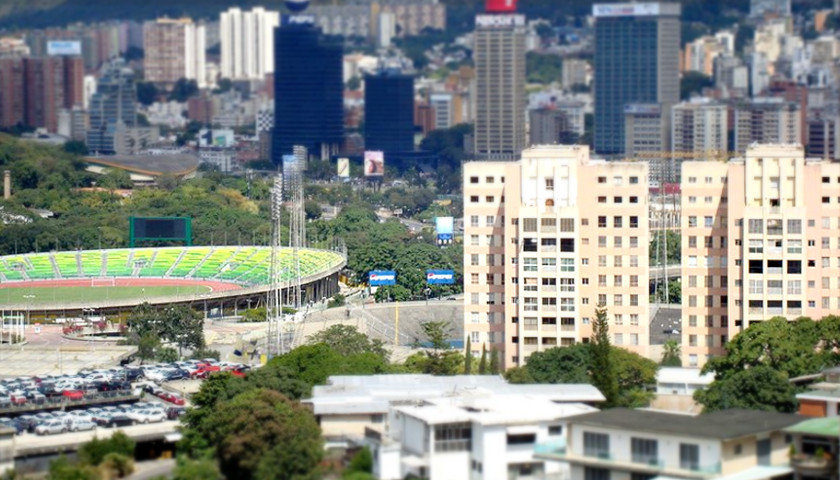by Jon Miltimore
Venezuela has experienced one of the sharpest economic declines in modern history—rampant inflation, near-famine, and an exodus of millions of asylum seekers. Yet there remains disagreement over what caused it.
Many refuse to blame socialism, instead citing the collapse of oil prices, corruption, its abandonment of democracy, and other factors. If socialism did play a role, it was a small one, says Venezuelan writer Francisco Toro in the Washington Post, citing “a unique mix of circumstances, in which socialism is just one ingredient.”
Others deny Venezuela was ever even socialist. Noam Chomsky, who praised Venezuela’s previous president, Hugo Chávez, for reducing poverty, is one.
“I never described Chávez’s state capitalist government as ‘socialist,’” Chomsky told John Stossel following Venezuela’s economic collapse. “It was quite remote from socialism. Private capitalism remained.”
The standard definition of socialism is “government ownership of the means of production.” When government takes ownership of the means of production, that is called “nationalization.” So the more a government nationalizes, the more socialist it is.
And Venezuela has been nationalizing a lot since Hugo Chavez came to power. Indeed one of Chavez’s slogans was: “All that was privatized, let it be nationalized.”
While it’s well known Chávez expanded state control over Venezuela’s oil operations and seized the assets of foreign and domestic producers, this is hardly the only industry he nationalized. Here is a shortlist of other industries and companies Hugo Chávez nationalized just during the last few years of his presidency, as well as the dire consequences for the Venezuelan people.
1. The Steel Industry
In 2008, Chávez threatened to expropriate Sidor, Venezuela’s largest producer of steel, claiming shareholders were demanding “excessive compensation” for the company’s nationalization, which he had ordered as part of an effort to improve worker salaries and benefits.
The following year, Ternium SA, Sidor’s parent company, agreed to sell its 59.7 percent stake in the company to Venezuela for $1.97 billion, finalizing the government’s takeover of Venezuela’s largest steel mill.
The results? In November 2019, Venezuela’s steel output reached an all-time low, Trading Economics reported—a thousand tons, down from 479,000 tons in March 2007.
2. Agriculture
In 2009, Chávez nationalized rice plants owned by the food giant Cargill, sending troops to processing plants, which he said were charging too much.
A year later, Chávez announced the seizure of a motor lubricants company and Fertinitro, Venezuela’s largest fertilizer company, which was partially owned by Koch Industries, which held a 35 percent market share.
It wasn’t just companies Chávez was seizing, however. The same month he expropriated Fertinitro, he announced he was seizing 494,000 acres of land owned by Vestey Foods, a British meat company, as part of a “friendly agreement.” The half-million acres, Reuters reported, represented just a fraction of the millions of acres Chávez seized and redistributed as part of his poverty reduction plans.
Today, many Venezuelans are growing their own food to avoid starvation.
3. Banking
Banco Federal, founded in 1982, was Venezuela’s 11th largest bank when Chávez ordered it seized in June 2010, citing liquidity issues. Banco Federal was one of no fewer than a dozen banks Venezuela closed following his $1.2 billion purchase of the Banco de Venezuela, an agreement he reached in an effort to nationalize Venezuela’s finance industry.
According to Bloomberg News, 16 bankers were arrested and more than three dozen arrest warrants were issued following the panic that ensued following Chávez’s announcement to nationalize the finance sector.
Venezuela in recent years has suffered an annual inflation rate of 10,398 percent.
4. Gold Mining
In October 2009, the Associated Press reported that US mining company Gold Reserve Inc. announced Chávez had “seized control of its lucrative Venezuelan gold mine as socialist authorities assert control over the nation’s mineral resources.”
For nearly two decades, the Spokane, Washington-based company had been excavating wealth from the Brisas mine, which holds an estimated 10.2 million ounces in gold reserves. Then Chávez terminated the contract and seized control. (In 2017, Venezuela was ordered to pay Gold Reserve Inc. $1 billion as part of a settlement.)
Two years later, plans for full-scale nationalization of all gold mining were announced.
“I have here the laws allowing the state to exploit gold and all related activities … we are going to nationalize the gold and we are going to convert it, among other things, into international reserves because gold continues to increase in value,” Chávez told state TV.
CNN reports that today Venezuela’s gold mines are ruled by death squads working in tandem with Maduro’s military.
5. Telecomms
Early in 2007, shortly after winning a second six-year term as president, Chávez announced his plan to nationalize Venezuela’s largest telecommunications company, CANTV.
“Let it be nationalized,” Chávez said of CANTV. “All that was privatized, let it be nationalized.”
The following month, Verizon, which owned a 28.5 percent stake in CANTV at the time, was paid $572 million for its share of the company.
By 2016, CANTV’s employee payroll had quadrupled and wages had surged, Reuters reported, but many of the nation’s phone lines were no longer operating.
“The company is frozen in time,” said Jose Maria De Viana, a former executive of CANTV.
6. Electricity
Even as Chávez was announcing his plans to nationalize telecommunications, he was maneuvering to take over production of Electricidad de Caracas, Venezuela’s largest private energy producer.
He got his wish at a presidential palace ceremony in February, when the CEO of US-based AES Corp signed away its 82 percent stake in the company for a reported $740 million.
Since March 2019, Venezuela has suffered from recurring electrical blackouts that have left millions without power or internet access for weeks at a time.
7. Tourism and Travel
In October 2011, Chávez unveiled his plan to turn Los Roques, a pristine white sand archipelago in the Carribean that had become a destination for wealthy tourists, into a haven for the poor.
Chávez said his government would seize private holiday homes and hotels and make them available to other classes, which could be transported from the mainland by speedboats and yachts seized from bankers (see above) who had fled Venezuela.
“There are some houses there that were illegally built,” Chávez told state TV. “We are going to expropriate them.”
Today, Los Rocques is no longer a destination for tourists. It’s a hot spot for drug smuggling.
8. Transportation
In September 2011, Chávez announced he had nationalized Conferry, Venezuela’s largest commercial shipping company.
Conferry, a family-owned company that had operated since the 1950s, owned ships such as La Lydia, which could carry more than 800 people and hundreds of cars at speeds up to 40 knots. The ships were often used to ferry people back and forth from the Venezuelan mainland to Margarita Island, one of the country’s main tourist destinations, on four-hour voyages.
According to Reuters, Chávez cited alleged performance issues—delays and customer complaints—as justification to put the company under state control.
“No more. That is a disaster. We’re going to nationalize it,” Chávez said in a call with state television. “The safety of our people who travel to Margarita is very important.”
In 2019, BBC News Mundo reported that the remains of Conferry’s fleet now “languish at the mercy of saltpeter and corrosion.”
“This used to be a fully operational port, now we have a complete terminal full of scrap metal,” one Conferry employee explained to BBC News Mundo during a tour of the facility.
The Fast Lane to Serfdom
People can continue to say that Venezuela’s tragic plight is unrelated to its socialist policies. Yet it cannot be denied that Venezuela suffered one of the sharpest economic declines in history immediately after it began one of the largest nationalization campaigns ever, one that went far beyond its state-run oil operations.
By nationalizing everything from steel and shipping to agriculture, mining, banking, electricity, telecommunications, and more, Hugo Chávez set his people on a path to serfdom from which there was no turning back.
People must not relish the tragedy of Venezuela, but we must learn from it. If we refuse, it’s a fate I fear we’ll soon see repeated.
– – –
Jonathan Miltimore is the Managing Editor of FEE.org. His writing/reporting has appeared in TIME magazine, The Wall Street Journal, CNN, Forbes, and Fox News.





